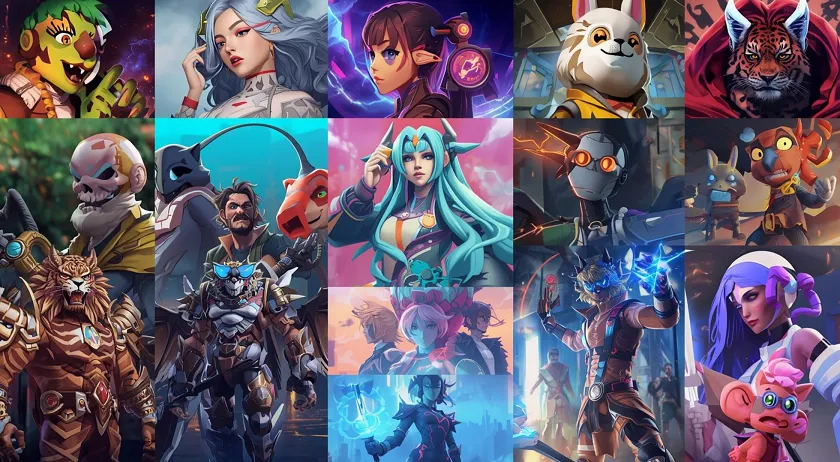🚀 Introduction: From Hype to Reality:
Remember when NFTs (Non-Fungible Tokens) were the hottest buzzword in 2021? Digital art selling for millions, celebrities launching collections, and social media flooded with pixelated avatars. Fast forward to 2025, and the question on everyone’s mind is: Are NFTs still relevant, or were they just a passing trend?
The truth is, NFTs have evolved far beyond digital art. They’re now powering industries like gaming, real estate, music, and even supply chains. But with changing market conditions and growing regulations, their future is being debated. Let’s break it down in simple terms.
🌍 What Are NFTs?
NFTs are unique digital assets stored on the blockchain. Unlike cryptocurrencies such as Bitcoin or Ethereum, which are interchangeable, NFTs represent ownership of something one-of-a-kind.
- Examples: Digital art, in-game items, music rights, real estate deeds.
- Key Feature: Each NFT is unique and cannot be replicated.
- Use Case: Proof of ownership, authenticity, and scarcity in the digital world.
📈 Long-Term Potential of NFTs:
Despite ups and downs, NFTs have strong long-term potential:
- Digital Ownership: As more of our lives move online, owning digital assets becomes natural.
- Gaming: NFTs allow players to truly own in-game items and trade them freely.
- Music & Entertainment: Artists can sell music directly to fans, cutting out middlemen.
- Real Estate: Property deeds can be tokenized, making transactions faster and more secure.
- Supply Chains: NFTs can track authenticity of luxury goods or rare items.
NFTs are not just about hype—they’re about creating a new digital economy.
✅ Pros and ❌ Cons of NFTs
- Pros:
- Unique ownership of digital assets.
- Potential for creators to earn royalties.
- Wide range of applications beyond art.
- Transparency and security through blockchain.
- Cons:
- Market volatility and price crashes.
- Risk of scams and fake projects.
- Environmental concerns (though improving with eco-friendly blockchains).
- Regulatory uncertainty in many countries.
🎮 NFTs in Gaming and Entertainment:
Gaming is one of the biggest drivers of NFT adoption. In 2025:
- Players can buy, sell, and trade in-game items as NFTs.
- Esports teams are launching NFT collectibles for fans.
- Musicians and filmmakers are using NFTs to fund projects and reward loyal supporters.
This shift is making NFTs more practical and less speculative.
🏠 NFTs in Real Estate and Business:
NFTs are also entering traditional industries:
- Real Estate: Property deeds tokenized as NFTs make buying and selling faster.
- Business Contracts: Smart contracts tied to NFTs ensure transparency.
- Supply Chains: NFTs track authenticity of luxury goods, reducing counterfeits.
These applications show NFTs are more than just digital art—they’re tools for efficiency.
🔐 Security Tips for NFT Users:
NFTs are exciting, but security is critical. Here are beginner-friendly tips:
- Use Trusted Marketplaces: Stick to platforms like OpenSea, Rarible, or Binance NFT.
- Enable Two-Factor Authentication (2FA): Always secure your accounts.
- Store Safely: Use hardware wallets to protect your NFTs.
- Verify Projects: Research before buying—avoid scams and fake collections.
- Beware of Phishing: Double-check URLs and never share your private keys.
🌟 Are NFTs Still Relevant in 2025?
Yes, but in a different way than before. The hype of million-dollar JPEGs has cooled, but NFTs are finding real-world utility. They’re becoming part of everyday digital life—whether in gaming, entertainment, or business.
Instead of asking if NFTs are a passing trend, the better question is: How will NFTs evolve to fit into our digital future?
📊 SEO Keywords to Target:
- NFTs in 2025
- Future of NFTs
- Are NFTs still relevant
- NFT security tips
- NFT long-term potential
❓ FAQ: NFTs in 2025
Q1: Are NFTs still valuable in 2025?
Yes, especially in gaming, entertainment, and real estate. Their value depends on utility, not hype.
Q2: Can NFTs be a safe investment?
They can be, but only if you research projects carefully and follow security best practices.
Q3: Will NFTs replace traditional ownership?
Not entirely, but they will complement it by offering digital proof of ownership.
Q4: Are NFTs regulated?
Regulations are evolving. Some countries are introducing rules to protect buyers and sellers.
🚀 Final Thoughts & Call-to-Action:
NFTs in 2025 are no longer just about hype—they’re about utility, ownership, and innovation. While risks remain, their long-term potential is undeniable. Whether you’re a gamer, artist, or investor, NFTs are shaping the digital economy of the future.
👉 Ready to explore NFTs and other crypto opportunities? Sign up for Binance today and take your first step into the world of digital ownership.

